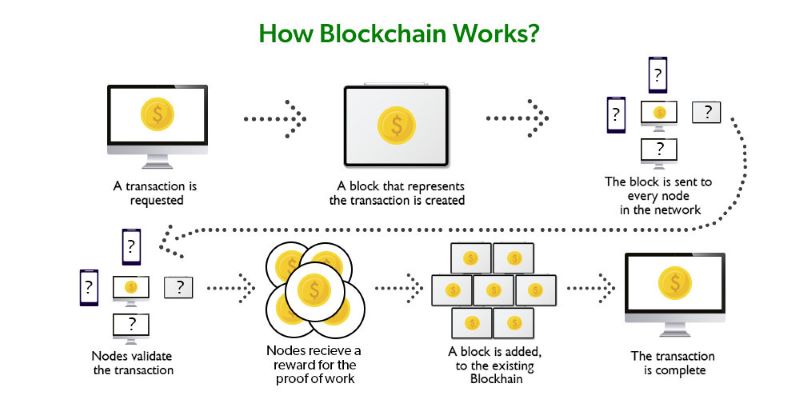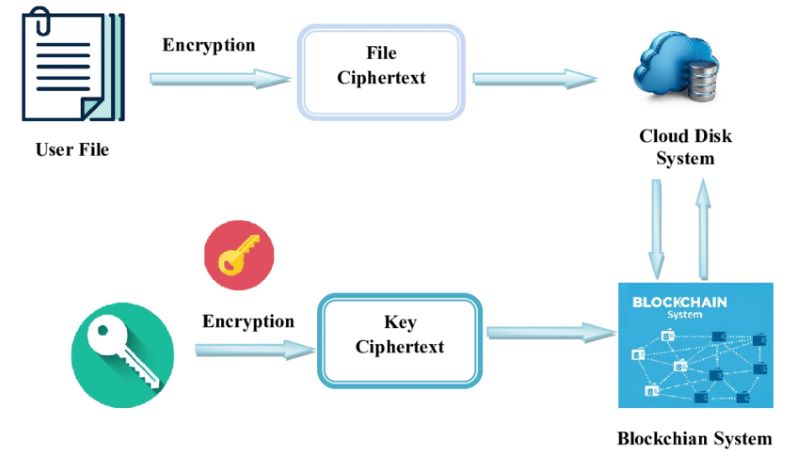
How does blockchain protect privacy?
Unlocking the Future: How Blockchain Protects Privacy. Discover Cutting-Edge Cryptography Methods and Protocols. Click to Explore the Next Level of Data Security in Blockchain Technology
How does blockchain work?
Blockchain is a decentralized, peer-to-peer digital database introduced by Satoshi Nakamoto in 2008 through Bitcoin, the pioneering cryptocurrency. It operates across network nodes, storing data in a unique format. Transactions are processed across multiple computers, creating a chain of immutable blocks linked via hashes, ensuring the security of sensitive information.

Decentralization eliminates the need for a central authority, enabling direct peer-to-peer transactions. Originally associated with cryptocurrencies, blockchain applications now encompass smart contracts, non-fungible tokens (NFTs), decentralized finance (DeFi) apps, and more. Its versatility in securely storing various data types makes blockchain a crucial component in the evolving global business landscape.
Private vs. public blockchain
| Aspect | Public Blockchain | Private Blockchain |
| Accessibility | Open to the general public | Restricted to specific user groups |
| Decentralization | Highly decentralized | More centralized |
| Decentralization | Transaction records are publicly accessible | Access controlled by a central authority |
| Verification | Independent verification | Verification by authorized users |
| Data Security | Relies on cryptographic security mechanisms | Controlled access for enhanced security |
| Processing Speed | Slower due to higher number of nodes | Faster due to controlled access and fewer nodes |
| Scalability | Potentially lower scalability | Better scalability with controlled access |
Data privacy and storage security concerns
Data privacy and storage security are critical concerns in blockchain technology, with various factors influencing the level of protection offered.
Public blockchains often lack robust safeguards for sensitive data, making them unsuitable for certain business applications where privacy is paramount. The decentralized nature of public blockchains may expose sensitive information to unauthorized access.
Different network configurations present unique data privacy challenges. Despite the widespread adoption of blockchain, numerous high-profile cryptocurrency breaches highlight its susceptibility to fraud and cyberattacks. For instance, hackers could exploit vulnerabilities in a user’s system to access confidential company information.

Regulatory uncertainty further complicates matters. While many businesses are eager to adopt blockchain technology, the lack of clear legal frameworks inhibits their willingness to do so. Strict regulations on cryptocurrency trading in certain jurisdictions pose additional challenges for businesses operating in those regions.
Addressing data privacy and storage security concerns requires comprehensive strategies that encompass technological solutions, regulatory compliance, and risk management protocols. As blockchain continues to evolve, stakeholders must remain vigilant in addressing these challenges to realize its full potential in driving innovation and security across industries.
How does blockchain protect privacy?
Decentralization: Blockchain distributes data across multiple locations, creating a distributed ledger. Each transaction is transparent and stored across a network of devices worldwide, reducing the risk of a single point of failure.
Block and Hash: Each block on the blockchain contains a unique block hash generated through a cryptographic hash function. Additionally, each block stores the hash of the previous block, ensuring data integrity and making it difficult for hackers to tamper with records.

Zero-Knowledge Proof: This technique enables users to prove the truth of a statement without revealing any additional information. Zero-knowledge proof tokens allow for untraceable transactions while still enabling verification, enhancing data privacy.
Blockchain Federated Identity DIDs: Blockchain enables decentralized identity (DID), allowing users to create and control their digital identities independently. With federated identity frameworks and smart contract audits, blockchain-based identities eliminate third-party dependence and enhance data protection.
The future of blockchain data privacy
The future of blockchain data privacy holds promising advancements in cryptography methods and privacy-preserving protocols. These developments aim to enhance the security and confidentiality of blockchain networks.
Advancements in cryptography, such as homomorphic encryption and secure multi-party computation, are poised to play a crucial role in protecting blockchain data. Homomorphic encryption allows for computation on encrypted data without revealing the underlying information, while secure multi-party computation enables multiple users to collaborate on computations without disclosing their inputs.

As businesses increasingly recognize the value of blockchain technology, they are likely to adopt it as a solution to their problems. With ongoing technological developments, blockchain is expected to become even more prevalent in various industries, offering enhanced data privacy and security features to address evolving needs and challenges.
Blockchain serves as a powerful guardian of privacy through innovative cryptographic methods and protocols. Its advancements in cryptography, such as homomorphic encryption and secure multi-party computation, ensure the security and confidentiality of data. As businesses seek robust solutions for data privacy, blockchain emerges as a leading contender. Explore the transformative potential of blockchain solutions at Solution of blockchain.



